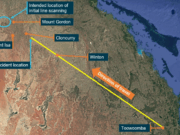The U.S. Federal Aviation Administration (FAA) says it has implemented enhanced medical monitoring of pilots diagnosed with an alcohol or drug dependency; as a result the U.S. National Transportation Safety Board (NTSB) said Monday it is satisfied that the FAA has met the terms of a 2007 safety recommendation.
“Recommendations to change inadequate safety systems can and will save lives, which is why we push so long for some particularly impactful safety improvements like this one,” NTSB Chairman Robert Sumwalt said.
The NTSB issued safety recommendation A-07-43 on June 25, 2007, in the aftermath of its investigations of “a number of aircraft accidents in which the … FAA had information to indicate, and was or should have been aware, that the pilot had a history of substance dependence, and in which the pilot’s substance dependence was relevant to the cause of the accident.”
The recommendation called on the FAA to “require that all airmen clinically diagnosed with substance dependence … who are medically certified by the FAA subsequent to such diagnosis, are followed under guidelines for special issuance of medical certificates for the period that they hold such certificates.”
The NTSB said that, in January, FAA Administrator Stephen Dickson told the board that the FAA was actively following pilots in those circumstances. The NTSB responded that it considered the action acceptable and that it was closing its 13-year-old recommendation.
The recommendation was one of more than 200 on the NTSB’s 2019−2020 Most Wanted List of Transportation Safety Improvements that have not been addressed. The NTSB considers the list its primary advocacy tool for the top safety improvements that could prevent accidents.


